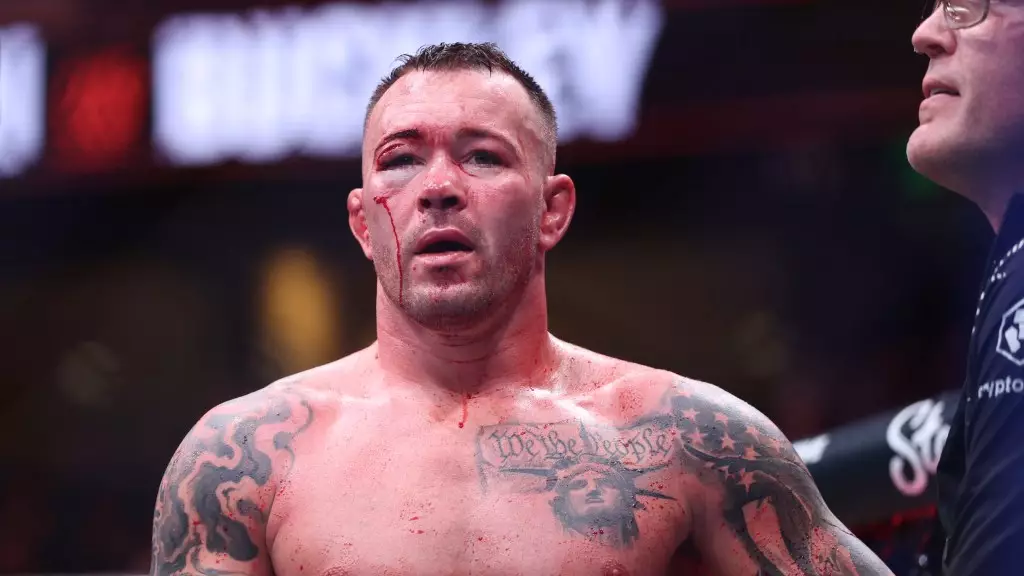Mixed Martial Arts (MMA) is a sport that epitomizes both physical prowess and mental toughness. However, the intensity of the competition often results in injuries that may necessitate medical suspensions. The recent UFC on ESPN 63 event held in Tampa, Florida, serves as a case study in understanding the medical precautions that the sport mandates, particularly emphasizing the implications of indeterminate suspensions placed on fighters.
In the realm of combat sports, the health and safety of athletes take precedence. A medical suspension is a period during which a fighter is prohibited from competing in further bouts until they are medically cleared. Following UFC on ESPN 63, five fighters were imposed with indefinite medical suspensions—an indication that their injuries are of particular concern. Such actions aim to prevent further harm to the athletes and ensure that they are fit for future bouts. This is critical because the nature of MMA injuries can be deceptive; fighters often push through pain, leading to situations that can exacerbate their health issues if unmonitored.
It is important to note that while these suspensions illustrate the sport’s commitment to fighter safety, specifics about the injuries are often withheld due to state laws. Accordingly, these indefinite suspensions should not be overlooked as mere bureaucratic procedures but as essential safeguards in a high-risk environment.
The main event between Joaquin Buckley and Colby Covington attracted significant attention, not only because of the high stakes involved but also due to the controversial outcomes of the fight. Buckley, who won via doctor stoppage due to a laceration, by all accounts should have been scrutinized for further evaluation. In contrast, Covington’s relatively lenient 45-day suspension may suggest that the incident resulted in minimal injuries or that the fighter’s resilience allowed for a quicker recovery assessment.
Interestingly, Buckley’s victory generated discussions on how fights can conclude without a definitive showing of dominance, especially when medical concerns are involved. It invites a broader dialogue about fight stoppages and their role in determining the outcomes of bouts, as well as the responsibilities of medical professionals in combat sports.
Indefinite suspensions have far-reaching implications beyond immediate recovery. For a fighter, time away from the octagon can significantly affect their career trajectory. When grappling with injuries, fighters may lose their competitive edge or even suffer from psychological repercussions stemming from being sidelined for extended periods.
In addition, the economic ramifications cannot be understated. Each fight potentially brings in significant financial returns, and being benched can disrupt a fighter’s earning potential. These factors combine to make the stakes even higher for competitors who battle not just their opponents but also the consequences of physical injuries.
One paramount aspect of this discussion involves the regulatory bodies that oversee fighter safety, such as the Florida Athletic Commission. They have the responsibility of ensuring that the fighters meet safe conditions to compete, making the issuance of medical suspensions a critical aspect of their work. The fact that the Florida Department of Business & Professional Regulation was involved in detailing the aftermath of UFC on ESPN 63 highlights the seriousness with which these entities approach fighter welfare.
While some may argue that indefinite suspensions may disrupt the sporting calendar, it can be posited that these measures are ultimately for the greater good of both the sport and its athletes. The autonomy given to medical professionals charged with assessing fighter health should never be undermined, as their expertise plays an integral role in preserving the integrity of MMA.
As the dynamics of MMA continue to evolve, incidents like those that occurred at UFC on ESPN 63 serve as sobering reminders of the inherent risks of the sport. The medical suspensions imposed on several fighters emphasize the necessity for rigorous health policies and protocols in the world of combat sports.
While the excitement and adrenaline of competition drive fan engagement and athlete ambition, one must not forget the fundamental importance of health and safety. By maintaining this balance, we not only honor the spirit of MMA but also protect those who dedicate their lives to this demanding discipline.

